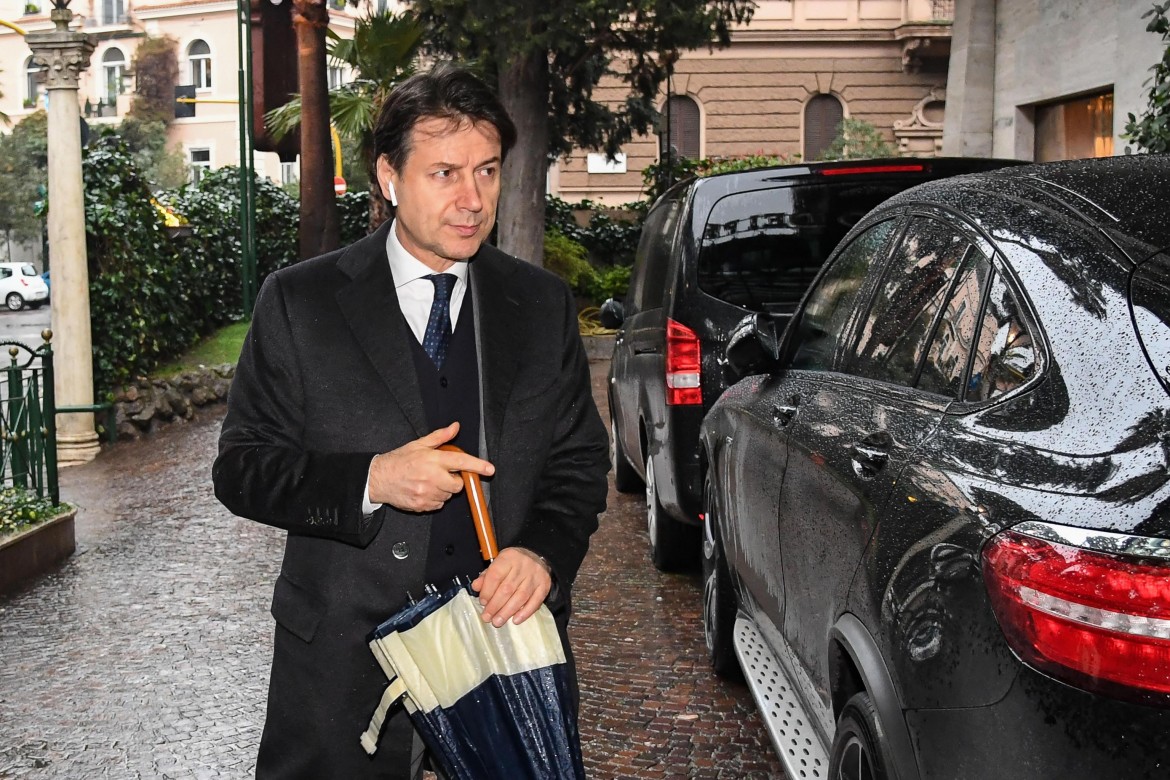Report
Italy’s new PM said he attended NYU. The university has no record of him.
Giuseppe Conte, confirmed Wednesday to be the next Italian prime minister, exaggerated his resume, according to multiple investigations into his background. Amid this scandal, and his association with a dubious medical treatment, Conte assumes the head of government.

The contents of one’s resume have been a veritable obsession for the 5 Star Movement, as over the years they have claimed that they selected their candidates—with the notable exception of their “political leader”—exclusively based on their list of qualifications, even asking a former president of the Constitutional Court to supply his CV.
But a too-impressive resume can also become a problem, as it was Tuesday for Giuseppe Conte, a professor of private law in Florence and the man who will be the next prime minister of Italy.
Two detailed resumes were made public by Conte, one on the website of the local civil lawyers’ association and one on the site of the Chamber of Deputies four years ago.
The latter is 12 pages long, and in its thoroughness does not forget to mention Conte’s participation in a conference on “Apartment buildings: contracts for better maintenance.” On a quick read, it gives the overall impression of an outstanding academic career.
It says that he has been involved with the most prestigious universities in the world, from Yale to the Sorbonne, from New York University to Cambridge. When, on a routine follow-up, denials started coming from almost all of these universities, Conte’s credibility began to falter. At the same time, several politicians have also attacked Conte for his 2013 legal fight in favor of the highly controversial “stamina” cancer treatment, which il manifesto wrote about Wednesday.
The scandal started in The New York Times, with an article by their Rome correspondent who reported that New York University could not find evidence of any previous relationship with Professor Conte.
Then Italian newspapers and news agencies began their own investigations, and the result was similar denials coming from the Sorbonne, from Cambridge’s Girton College, and even from the far less prestigious University of Malta.
In truth, Conte never wrote in his lengthy resume that he was actually employed by those universities, but rather that he attended them to “deepen his legal studies.” Generally, he wrote that this took place during the summer holidays, sometimes stating “for a period of no less than one month.”
These studies must have had very little in terms of formal status. Once the scandal broke, the professor said that he could provide, in part, evidence of these studies by means of emails from his other colleagues. This does not appear, therefore, to be a case of straight-up lying in his resume, but of a bad impression caused by the desire to make one’s resume as attractive as possible.
See, for instance, the case of his stay at the International Kultur Institut in Vienna, where Conte’s resume says he studied for three months in 1993 to “perfect his legal studies.” The reality, according to the investigation by Adnkronos, was that this was a first-level German course that he took for one month, three years before, in a school that had a different name.
Nothing but small indiscretions, if he was merely a private individual—but not so for a candidate for the Palazzo Chigi, backed by a party which gives transparency an almost mythical status.
It seems strange, for instance, that Conte writes that he “opened a new legal practice in 2002 with Professor Guido Alpa,” given that Alpa at that time was already the vice president of the National Bar Council, and that until Monday, Conte was listed as a “collaborator” of this legal practice (Tuesday their site went offline, and, when contacted by Il Foglio, they failed to clarify Conte’s relationship).
As for the stamina treatment case, it was mainly Democratic Party representatives who started the scandal, pointing to the positions taken by Conte in 2013.
In Tuesday’s Italian edition, il manifesto reconstructed the case, in which the law professor defended Sofia’s family, a child suffering from a neurodegenerative disease and who was, in the end, treated with the Stamina method. Its inventor, Davide Vannoni—convicted in the meantime, together with his partner, for criminal conspiracy, and now again under investigation and house arrest for attempting to advertise his now-discredited method in the scientific community—stated Tuesday that he had not had any relationship with Conte.
However, Conte was the lawyer representing the family in their court battle, where they even managed to win some partial victories, as the child, Sofia, was given the treatment (she died late last year).
In 2013, Conte participated as a promoter in the launch of the Voa Voa foundation, which supported the Stamina foundation. Today he is not a member of this association, as Sofia’s parents—who have recently called Vannoni “a con man”—have now clarified.
Originally published at https://ilmanifesto.it/conte-un-curriculum-esagerato/ on 2018-05-23
